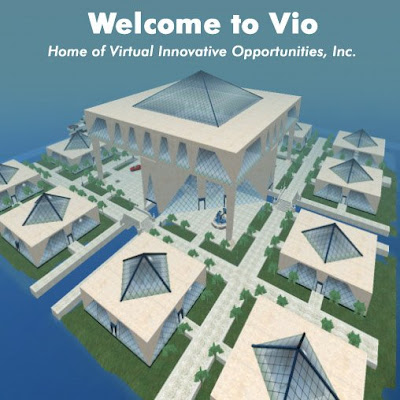
With the surge in growth in the first quarter of 2007 of Second Life® (http://www.secondlife.com) , a well-established virtual world created by Linden Labs, the business community began to take notice of this global online community as a potential marketplace. Since then, a host of other virtual platforms or grids, such as CentralGrid (http://www.centralgrid.com) have been born, catching up to capitalize on this trend. Even behemoth Google has gotten into the act and created its own virtual world platform (Lively). From our observations of its roll-out, Lively shows promise, but it has a long way to go.
There was a virtual Gold Rush of new members joining Second Life, when an article appeared on CNN about the first "virtual millionaire," Anshe Chung (real name: Ailin Graef). With a growing economy within the virtual world, consisting of credits convertible into real currency, there was a opportunity for people to make real income.
Many businesses sprung up as entrepreneurial members explored a virtual platform that had seemingly fewer barriers for business. Stores selling accessories for avatars, clothing, vehicles, homes, scripts, and animations became very successful. People could buy and sell or rent "virtual land" or space in the virtual world, and could turn a profit as long as demand surpassed supply.
There has been a growing trend of real world businesses (Such as IBM, Toyota, and Oracle) who have ventured into the virtual world to expand their marketing efforts and/or to develop communication and technology tools that benefit their business. The virtual business community of VIO has attracted the likes of real world companies Fedex, Oracle, and Camenae Healthcare. By providing the real world clients with access to virtual world resources, tools and training, VIO has shortened the learning curve of these companies.
For most people in the virtual world, this trend hasn't grown fast enough. There have been challenges to growth of the virtual world. There has been a general lack of momentum for embracing the new technology, and a general perception of the virtual world as a place for gaming and sex. This was a similar perception experienced by the pioneers of the world wide web in the early 1990's. What it will take to overcome these perceptions, is for the business community to take the lead. They will need to invest in the technology, and share their successes with the public through the media. More blogs about virtual business won't hurt, either.
We welcome feedback from others in the business community about their successes and challenges faced when forging a beneficial presence in the virtual world.
------------------------
The Successful Virtual Business blog is a service provided by Virtual Innovative Opportunities (VIO) and the web solutions provider, PROactive Media. The blog is mediated by web technology consultant and speaker Tony Coolidge.
VIO, founded by Howard Odor and Tony Coolidge, is a leading in-world business community and incubator within Second Life®, promoting collaboration and growth through partnership between virtual world businesses and real world companies.
PROactive Media has developed web solutions for hundreds of clients since 2001. The company's current strength is web marketing and search engine optimization (SEO) solutions. Its web marketing packages, branded as SEO TrafficBoost™ (http://www.seotrafficboost.com), builds traffic-building web assets for clients, including assets in the virtual world.
Tony Coolidge has been a web development professional since 1995. He started as a partner with Orlando Online. In 1999, he co-founded a B2C Internet auction company that became a publicly-trading company on the American Stock Exchange. In 2001, he founded PROactive Media, an Internet and new media consulting company. In 2005, he founded Katrina's Angels, one of the largest non-profit volunteer organizations serving the needs of Hurricane Katrina survivors.

No comments:
Post a Comment